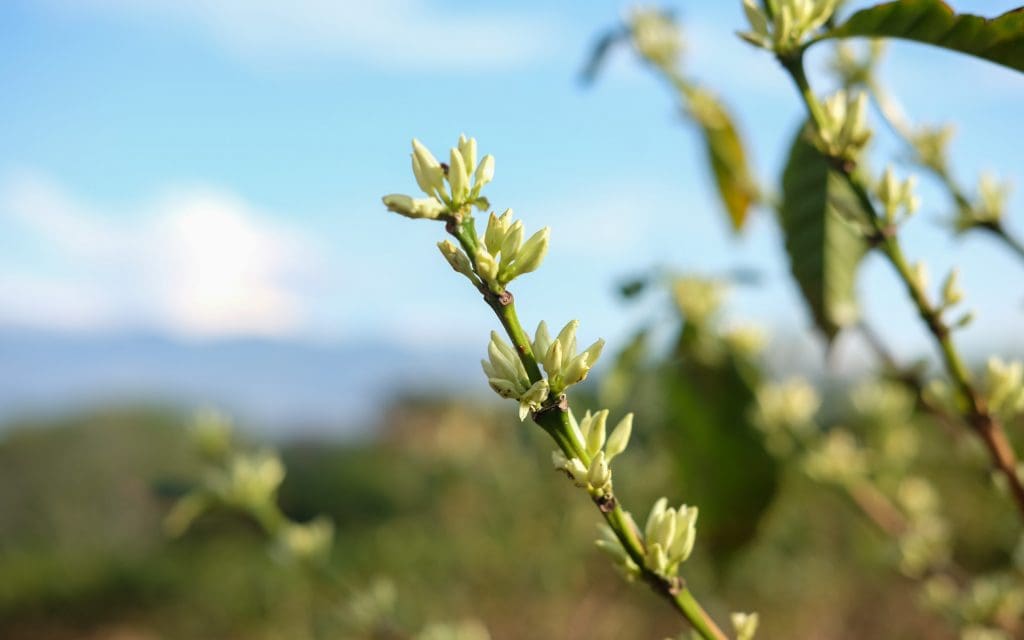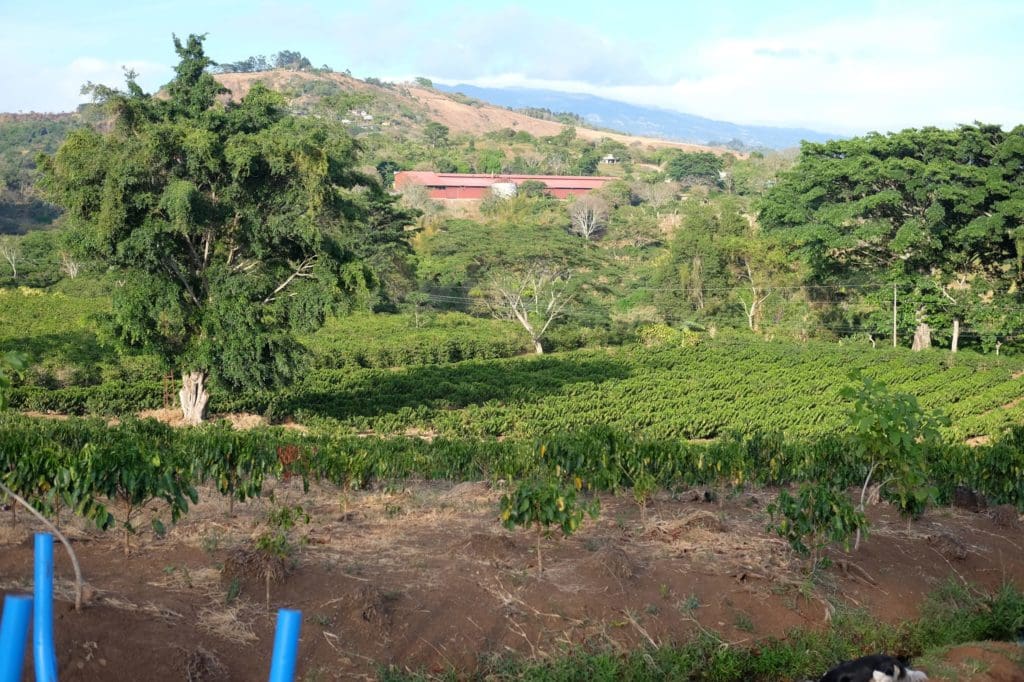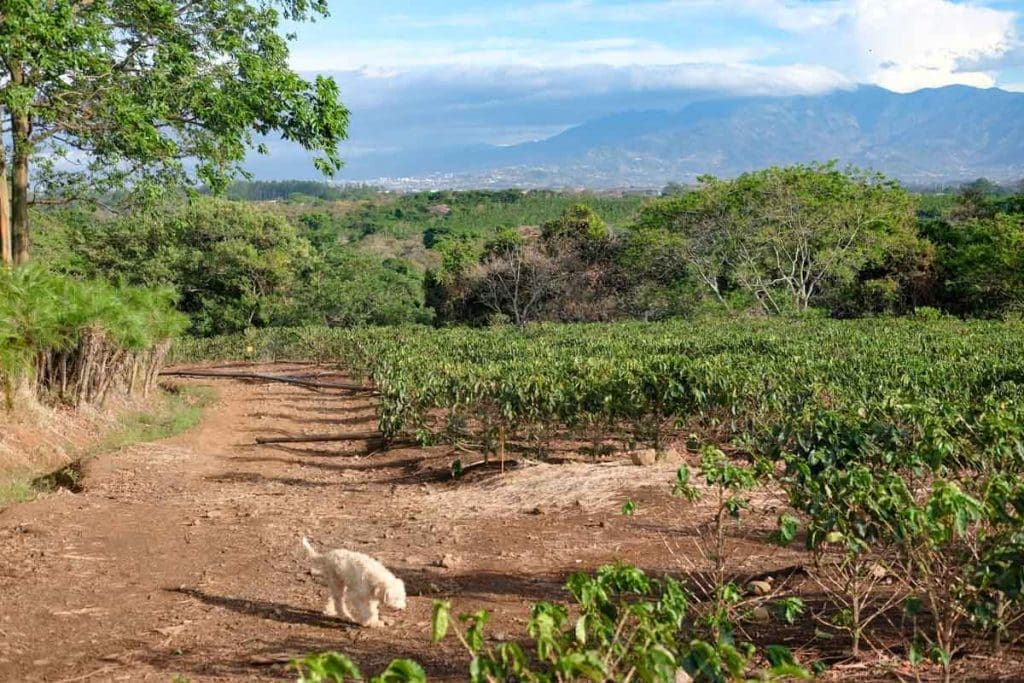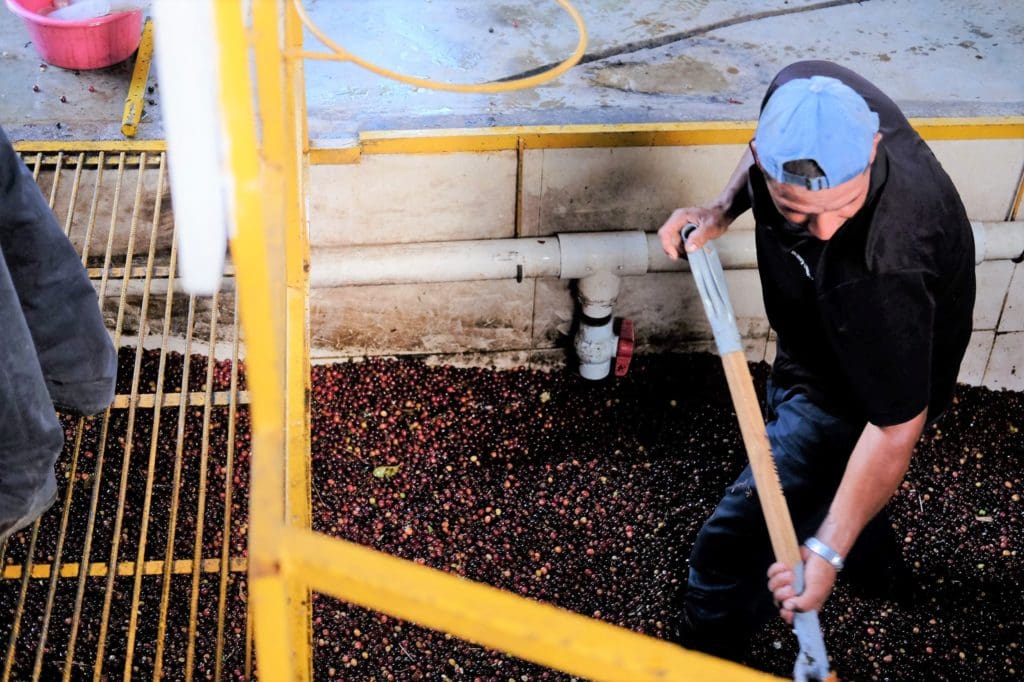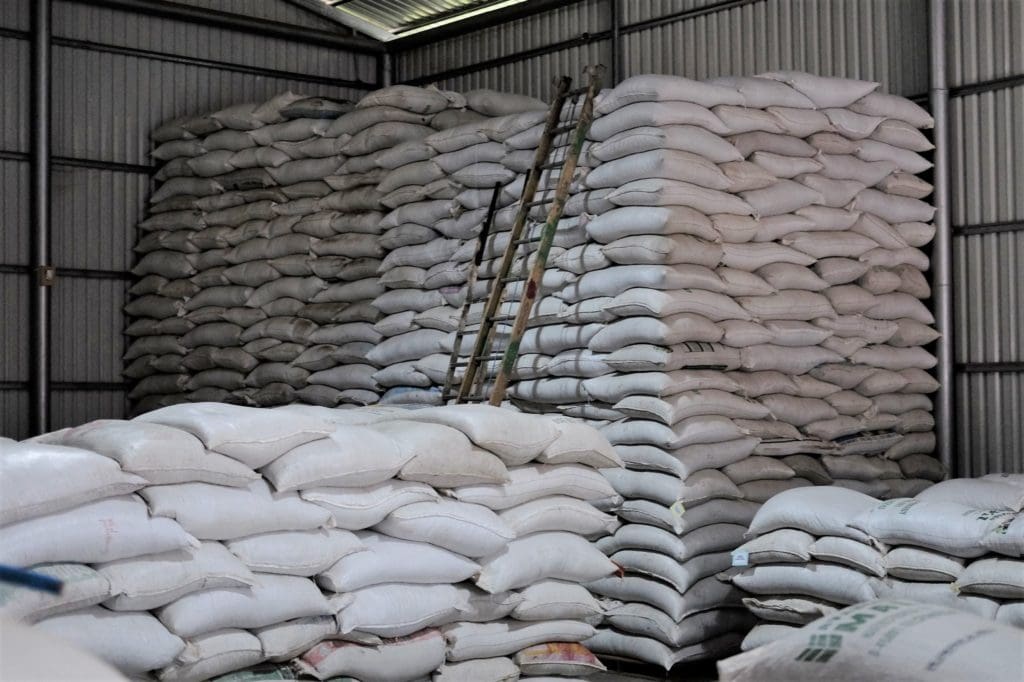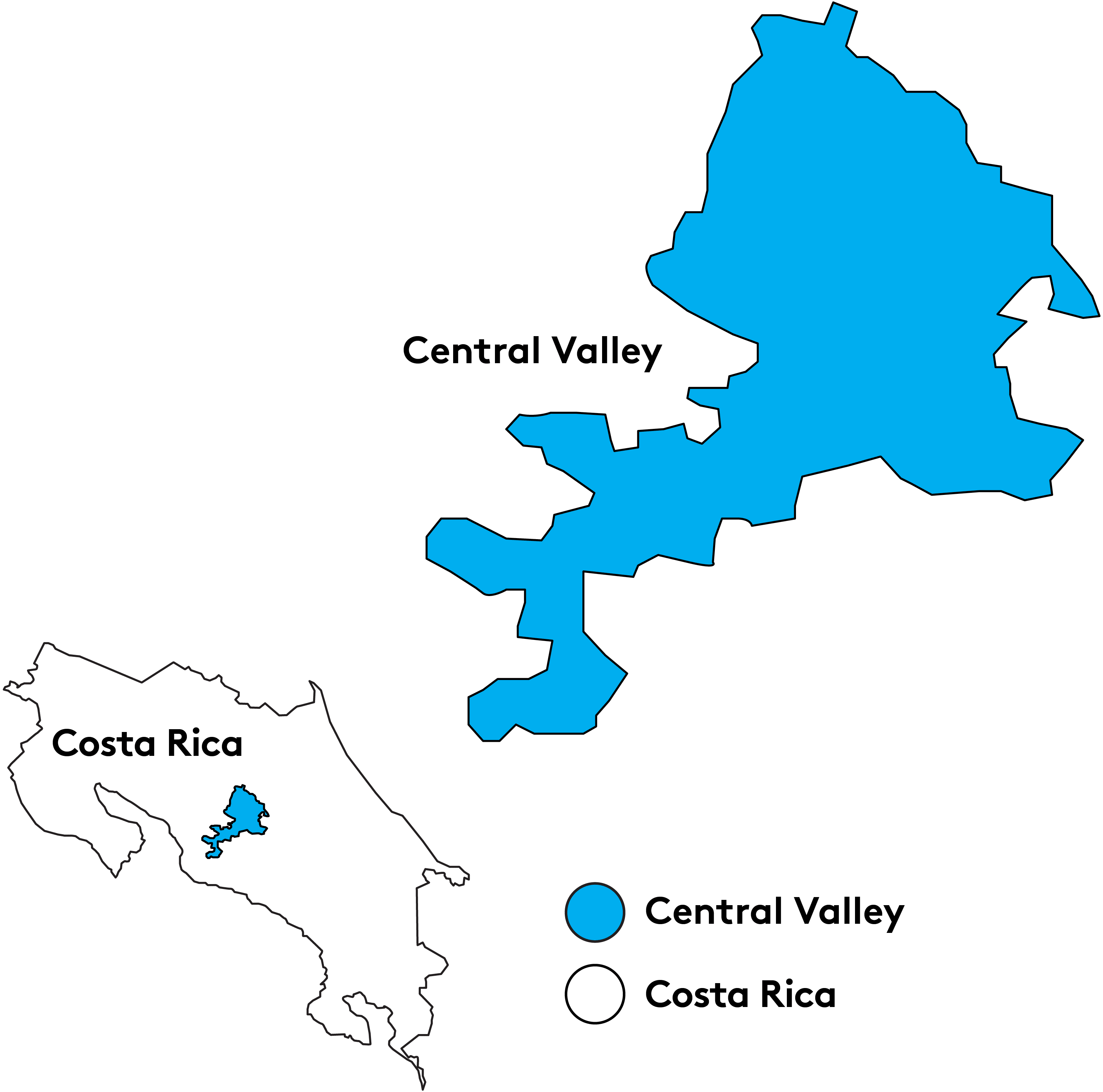Hacienda Sonora is a family farm located in the Central Valley region of Costa Rica at the foot of the Poas Volcano in Carrillo, Alajuela. Diego Guardia is the fifth generation of coffee producers in his family and now runs the 100 hectare farm. The property includes 55 hectares of shaded coffee, 35 hectares of wild forest reserve, and 10 hectares of sugarcane production. Coffee here grows in an environment surrounded by diverse trees and other vegetation, which provides excellent conditions for quality production and improves the chemistry of the already rich volcanic soil. Thanks to the farm’s diverse ecosystem, many species of birds and animals call the farm their natural habitat.
The farm’s micromill is at the heart of Hacienda Sonora situated next to a fully-preserved, 150-year-old traditional sugarcane press called a trapiche. The micromill only produces coffee through Honey or Natural processing. This choice is made to ensure distinct sweetness in the cup, as well as to enhance the fruit notes of the coffees, complementing the body of the cup profiles which results from the different varieties grown on the farm.
Through the farm’s many generations of operation, proper care for the environment has been of major importance. The commitment to Natural and Honey processing methods reduces water usage, saving three gallons of water per pound of coffee that would have instead undergone Washed processing. 100% of the power consumed by the farm is generated by renewable energy sources on the property. Sustainable power is harvested from a natural freshwater stream with a special turbine known as a Pelton Wheel. This energy supplies power to the coffee mill and generates a portion of free electricity for workers living on the farm.
Hacienda Sonora provides free accommodations, including most household utilities, for each worker and their families in the houses on the farm. All employees enjoy the full benefits of the Costa Rica health insurance system as well. Producer Diego Guardia and his father Alberto hold Hacienda Sonora to high standards of social and environmental responsibility as well as to the production of high-quality coffee.
Ally’s Microlot Selection
Bram is Ally’s buyer for Central America and his office is located near the CECA quality control office and lab where Diego works, only about five minutes away by bicycle. Sonora organizes their harvest by day-lot selection and Bram cups regularly throughout the harvest to find the best profiles. Once he selects the lots, those day-lots retain their traceability throughout the rest of their processing and shipment prep.
This lot is a Natural process Sarchimor coffee. Sarchimor is a family of cultivars made originally by crossing Timor and Villa Sarchí. Timor is a natural cross between coffea arabica and coffea canephora, while Villa Sarchí is itself a natural mutation of Bourbon that was first recorded in the 1950s or 1960s in Costa Rica. The Sarchimor varieties are known for their resistance to la roya coffee leaf rust, making them hardy plants for producers to rely on throughout ongoing bouts of the disease.
Sonora keeps careful logs of harvest volumes, which sections of the farm they come from, and the drying times for each lot. Planning, organization, and annual adjustments are part of the team’s standard order of operations. Their record keeping and communication provide full harvest and processing traceability to record all the details of each lot’s journey from the trees to the jute sack sewn shut for export.
